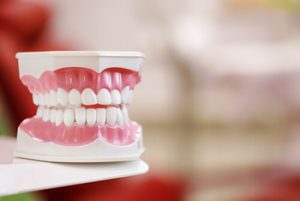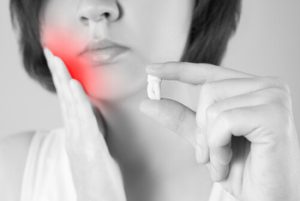Front tooth pain under nose area can be both confusing and uncomfortable. The ache may seem isolated to a single tooth, but the real cause could lie elsewhere, like your sinuses, nerves, or even jaw muscles. Understanding the potential triggers of this pain is the starting point for proper treatment and lasting relief.
This guide will explore what might cause front tooth pain under the nose, the connection between sinus infections and toothaches, and what you can do at home, or with professional help, to manage the discomfort.
Why Am I Feeling Front Tooth Pain Under the Nose?
Pain in this region can come from several sources:
- Dental causes (such as cavities or abscesses)
- Sinus-related pressure
- Trauma or injury to the area
- Nerve irritation
- Bruxism (teeth grinding)
While many people assume a toothache is always dental in origin, sinus conditions can just as easily cause discomfort in the upper jaw and nearby teeth.
The Sinus–Tooth Connection
Your maxillary sinuses sit directly above your upper teeth, especially the upper molars and premolars. The roots of your upper rear teeth are very close to the sinus cavities, and inflammation in this area can trigger pain that feels like it’s coming from your teeth. This is known as a sinus toothache.
A sinus infection, also called sinusitis, can build up pressure in the spaces behind your cheeks and nose, causing pain that radiates to the front teeth, particularly those right under the nose. It’s easy to mistake this for a dental problem when, in fact, the sinuses are to blame.
Common Causes of Front Tooth Pain
Let’s take a closer look at the most common reasons people experience this type of discomfort.
1. Sinus Infections and Sinus Pressure
When your sinuses get swollen, often from an infection, allergies, or changes in the weather, it can cause swelling inside your nose and in the air spaces around it. The resulting sinus pressure puts force on the nerves of the upper teeth, causing pain that’s often dull and throbbing.
Symptoms include:
- A blocked or stuffy nose
- A feeling like mucus is sliding down your throat
- Tenderness around the cheeks and nose
- Fever or fatigue
- Tooth pain that worsens when leaning forward
Because a sinus infection happens near the roots of your upper teeth, it can be hard to tell where the pain is really coming from.
2. Cavities or Tooth Decay
A dental cause, like cavities or a tooth infection, can also cause sharp, localised pain. These issues are usually accompanied by:
- Sensitivity to hot or cold
- Visible holes or discolouration
- Swelling in the gum near the tooth
- Pain when biting down
If your dentist identifies a cavity or abscess, treatments such as a filling, tooth extraction, or root canal may be necessary.
3. Teeth Grinding (Bruxism)
Teeth grinding or clenching, particularly during sleep, can strain the jaw muscles and cause radiating discomfort through the upper teeth. Over time, this pressure can affect the tissues supporting the teeth, resulting in pain or even microfractures.
4. Gum Disease or Inflammation
Gingivitis, periodontitis, and other gum problems can affect the area around the front teeth, causing swelling, discomfort, and pain under the nose. Watch for:
- Red, swollen gums
- Bleeding when brushing
- Receding gumlines
When Is a Sinus Infection Causing Tooth Pain?

- Pain in multiple upper teeth, not just one
- Increased discomfort when bending over
- Thick or coloured mucus from the nose
- Tenderness or swelling around the nose and eyes
If these match your experience, the issue may stem from your sinuses rather than your teeth.
How to Relieve Sinus Pressure That Causes Tooth Pain
If a sinus blockage or inflammation is behind your front tooth pain, the following approaches can offer relief:
1. Decongestant Nasal Sprays
Over-the-counter (OTC) decongestant nasal sprays can shrink swollen blood vessels in the nasal passages, easing pressure on surrounding nerves.
Be cautious not to overuse these, as extended use may cause rebound congestion.
2. Saline Solution or Neti Pot
Rinsing your nose with a salty water solution using a special tool (like a neti pot or spray) can help clear out mucus and make it easier to breathe. Always use clean water that’s been boiled and cooled, not tap water, to stay safe.
3. Hot Shower or Warm Compress
Taking a hot shower or applying a cold compress or warm cloth to the affected area can help reduce swelling and open up your sinuses.
4. OTC Medications and Pain Relievers
Common pain relievers like paracetamol or ibuprofen can help with strong pain caused by a sinus infection or dental problem. Ask your dentist if you’re not sure what’s safe to take.
5. Drink Plenty of Fluids
Hydration helps keep mucus thin and promotes drainage from the sinuses, relieving pressure on nearby teeth.
Home Remedies for Toothache Caused by Sinus Inflammation
If you’re waiting to see a dentist, try these temporary home remedies:
- Gargle with warm water and salt to reduce gum inflammation
- Apply a cold compress to your face to ease pressure
- Avoid allergenic or spicy foods if allergies are involved
- Use a humidifier in dry climates to keep nasal tissues moist
- Keep your head raised while resting to help your nose and sinuses clear out.
What If the Pain Isn’t Sinus-Related?
If your symptoms don’t align with a sinus infection, or if pain persists after sinus symptoms improve, a dental issue may be the cause.
Make an appointment with your dentist to evaluate for:
- Cavities
- Cracked teeth
- Gum recession
- Signs of a dental abscess
- Nerve damage
Your dentist can find out what’s causing the pain and suggest the right treatment to help you feel better.
When to See a Dentist

- Severe pain that doesn’t improve with pain relief
- Persistent swelling, fever, or a bad taste in the mouth
- Signs of infection, such as pus or spreading redness
- Tooth sensitivity or pain that’s localised to a single area
- Ongoing symptoms even after sinus treatments
It’s also wise to see a dentist if you haven’t had a recent check-up, as they can rule out underlying dental causes like cavities or inflammation.
Preventing Future Episodes of Tooth Pain Under the Nose
Whether the cause is sinusitis, allergies, or teeth grinding, prevention comes down to good oral hygiene and sinus care.
Tips to Keep Tooth and Sinus Issues at Bay:
- Brush and floss daily
- Schedule regular dental check-ups
- Avoid allergens and treat seasonal allergies proactively
- Use nasal saline sprays during cold or allergy seasons
- If you tend to grind your teeth, using a night guard can help protect them while you sleep
- Avoid smoking, which can irritate both gums and sinuses
Final Thoughts: Front Tooth Pain Under Nose
Experiencing front tooth pain under the nose can be frustrating, especially when the root cause isn’t obvious. From sinus infections to dental problems, a range of issues could be causing pain in this delicate area.
If you’re concerned about front tooth pain under your nose or want peace of mind about whether it’s dental or sinus-related, book a consultation or call (08) 7078 8263.
Resources
Cronkleton, E. (2022). ‘Can a Sinus Infection Cause a Toothache?’. Healthline, 4 October. San Francisco, CA: Healthline Media. https://www.healthline.com/health/dental-and-oral-health/sinus-toothache
Mayo Clinic Staff. (2021). ‘Slide show: Root canal treatment’. Mayo Clinic, 21 December. Rochester, MN: Mayo Foundation for Medical Education and Research. https://www.mayoclinic.org/diseases-conditions/tooth-abscess/multimedia/root-canal/sls-20076717#:~:text=Root%20canal%20is%20a%20treatment,canals%20inside%20a%20tooth’s%20root.
Duran, R. & Seed, S. (2024). ‘What Is an Abscessed Tooth?’. WebMD, 16 January. New York, NY: WebMD LLC. https://www.webmd.com/oral-health/abscessed-tooth
Note: Any surgical or invasive procedure carries risks. Before proceeding, you should seek a second opinion from an appropriately qualified health practitioner.


